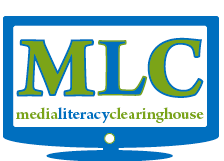Questions To Ask About Media Messages
“At the heart of media literacy is the principle of inquiry.”
Elizabeth Thoman, Skills & Strategies for Media Literacy
- Who is the producer/storyteller of the message?
- What is their purpose/motive/agenda? (to inform, to persuade, to educate, to call to action, to entertain, to shock)
- Who is the intended (primary) target audience? How do you know? Is there another (secondary) audience?
- What does the message say? How does it say it?
- How do you know what the message means?
- What format/medium does the producer use?
- What are the advantages of the format/medium?
- What methods/techniques does the producer use to make the message attractive/believable?
- What lifestyle is portrayed in the message? What clues tell you?
- Who makes money or benefits from the message? (Follow the Money Trail activity here)
- Who/what is left out of the message?
- Whose interests are served by telling/showing the message in a particular way?
- Do you agree with the message?
- How might different people interpret the message differently?
- What do you know; what do you NOT know; What would you like to know?
- Where can you go to verify the information or get more reliable information?
- What can you do with the information you have obtained from the message?
Source: some of the above is derived from a curriculum entitled KNOW TV and from
previously published works.
Conceptual Framework for Media Education
Media Image |
Questions to Ask |
| Industry | Who’s in charge? What do they want of me, and why? What else do they want? HOW DO I KNOW? |
| Product | What kind of text is this? Are conventions followed or broken? How is this message constructed? HOW DO I KNOW? |
| Audience | Who is this intended for? What assumptions does the text make about the audience? Who am I supposed to be in relation to this text? HOW DO I KNOW? |
| Values | How real is this text? How/where do I find the meaning? What values are presented? What is the commercial message? What is the ideology of this text? What social/artistic/political messages does the text contain? HOW DO I KNOW? |
| Predisposition | Do I agree with (assent to) this text’s message? Do I disagree with (resist) this text’s message? Do I argue/negotiate with the message of this text? HOW DO I KNOW? |
| Perception | How does the text fit my personal values/beliefs/ideology? How does the text relate to my personal needs/hopes/fears/experiences? HOW DO I KNOW? |
| Skills | What skills do I need to apply to this text? How do I deconstruct/reconstruct this text? What new skills does this text demand of me? HOW DO I KNOW? |
| Receiver | What does all this mean in the end? HOW DO I KNOW? |
What really counts in the end is what we make of the text. All learning is an act of construction.
Source:
© Chris Worsnop, 1999. Adapted by the author from Screening Images: Ideas for Media Education. Wright Communications, 1994. Original post at:
http://www.media-awareness.ca/english/resources/educational/teaching_backgrounders/media_literacy/conceptual_framework_worsnop.cfm?RenderForPrint=1



